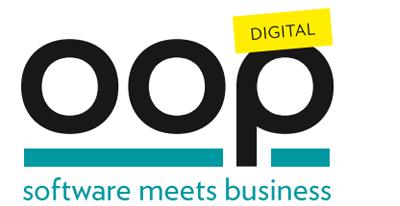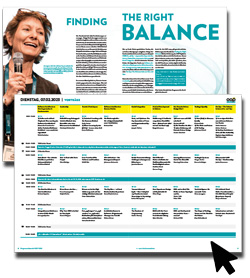Das gesamte Konferenzprogramm auf einem Blick? Kein Problem, alle Programminhalte finden Sie hier jetzt auch als praktische PDF-Broschüre ganz bequem zum durchscrollen, downloaden oder ausdrucken:
Zur PDF-Broschüre
Track: Half Day Tutorial
- Montag
06.02.
Today we must deal with shorter time-to-market, increasing complexity and more agility while keeping quality and other key system properties high.
To address these challenges the right balance in testing w.r.t. independence, timing, automation, and formality is critical but often not explicitly tackled.
Therefore, in this interactive tutorial we reflect on our current approach on balancing testing, investigate and discuss needed strategies, tactics, and practices, and share experiences to…
Unsere Welt verändert sich rasant, wird immer weniger vorhersagbar, komplexer und widersprüchlicher. Und damit geht auch ein Wandel der traditionellen Rolle der Führungskraft einher. Bisher funktionierende Führungsmethoden, erfolgreiche Verhaltensweisen und ein bewährter Führungsstil stoßen nun an ihre Grenzen.
Es verändert sich etwas im Gefüge zwischen Führungskräften und Mitarbeitern. Eine Antwort darauf kann lean-agile Leadership sein. Die erfordert ein neues Rollenbild und Selbstverständnis…
Bekanntlich haben nichtfunktionale Eigenschaften den größten systemischen Einfluss auf Software-Architekturen.
- Attribute-Driven Design illustriert, wie sich Qualitätsattribute gezielt in Architekturen einfügen lassen.
- Methoden wie ATAM und CBAM sind nützlich, um Software-Architekturen hinsichtlich nichtfunktionaler Eigenschaften zu überprüfen.
Alle genannten Methoden basieren auf Szenarios.
Das Tutorium führt in die Grundlagen Szenario basierter Architekturerstellung und -bewertung ein.
Zielpu…
Agile Games sind in aller Munde. Viel wird gespielt.
Dass Spielen kein Selbstzweck ist, hat sich herumgesprochen.
Doch was braucht es, um Spiele wirksam zu machen? Und was bedeutet das überhaupt?
Dieser Workshop zeigt auf, was es braucht, um ein Spiel wirksam zu facilitieren.
Dabei durchlaufen die Teilnehmenden ein 4-Schritte-Modell und erfahren interaktiv, welche Schritte notwendig sind, und wenden diese selbst an.
Am Ende des Workshops haben die Teilnehmenden so die Erfahrung gemacht, was es…
Approval testing is a technique that helps you to get a difficult codebase under test and begin to control your technical debt. Approval testing works best on larger pieces of code where you want to test for multiple things and interpreting failures is challenging.
In this hands-on session we'll introduce a commonly-used Approval testing tool for Java and through hands-on exercises learn to get control of some example code. The same tool is also available for many other programming languages,…
Nicht nur Teams mit hoher Diversität treffen auf polarisierende Themen und Konflikte, die es scheinbar unmöglich machen, einen Konsens oder gar ein gemeinsames Vorgehen zu finden. Denkmodelle, die auf Argumentation und Objektivität beruhen, scheitern hier oft bereits im Ansatz.
Eine Einführung in die psychologische Forschung erklärt, warum das so ist, und welche Denkmodelle hier weiterhelfen können. Dann sammeln Teilnehmer praktische Erfahrung mit Gesprächsformaten, die helfen, Polarisierung…
Join this tutorial to experiment with a self-reflection process, designed to bring balance into your own development journey.
Rooted in professional coaching practices from Co-Active Coaching, connected with several Liberating Structures, and inspired by ideas from Emotional Agility, this session will help you clarify your goals and aspirations as well as find the right balance for 2023.
Why do you do what you do? What’s important to you about it? What’s next?
Discover answers to these…
How often have you heard that “Yes this is important, but we don’t have the capacity right now” or “sure let’s put it in the backlog”?
At least 1 in 5 people in the UK have a long-term illness, impairment or disability. Many more have a temporary disability. A recent study found that 4 in 10 local council homepages failed basic tests for accessibility.
Bring a laptop.
Max. number of participants: 20
Target Audience: Everyone
Prerequisites: None
Level: Basic
Extended Abstract:
How often have you…


